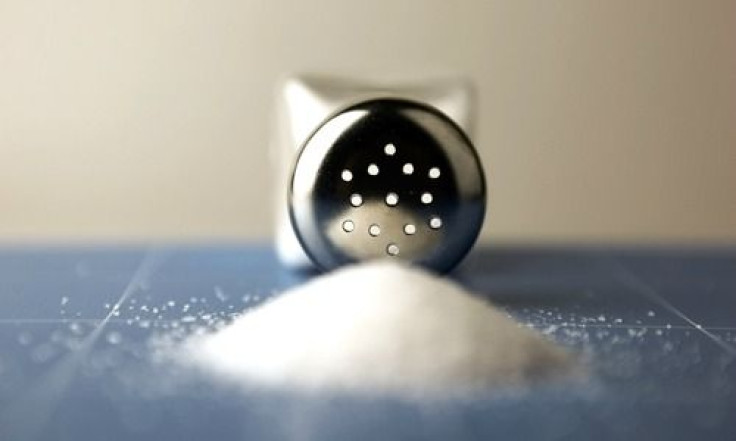Too Much Sodium Causes Nearly 2 Million Global Cardiovascular Deaths A Year

A salt shaker is a great way to turn it up on the dance floor, but at the dinner table, it increases your risk for cardiovascular-related death, according to researchers from Tufts University in Boston.
"High sodium intake is known to increase blood pressure, a major risk factor for cardiovascular diseases including heart disease and stroke," Dr. Dariush Mozaffarian, lead study author and dean of the Friedman School of Nutrition Science and Policy at Tufts, said in a press release. "However, the effects of excess sodium intake on cardiovascular diseases globally by age, sex, and nation had not been well established."
To get a better idea of how sodium intake impacts a person’s cardiovascular health, researchers conducted a meta-analysis of the current rates of cardiovascular disease, results of previous sodium-related surveys, and otherwise global nutrition data to narrow down intake differences, if any, between country, age, and sex.
The results showed global sodium intake far exceeds the World Health Organization’s (WHO) recommended amount of 2 grams (g) a day, totaling closer to 4g. Intakes varied on a regional level — 2.18g in parts of Africa, 3.6g in North America, 5.5g in Central Asia — but for the most part, we’re all just eating too much salt.
"These 1.65 million deaths represent nearly one in 10 of all deaths from cardiovascular causes worldwide,” Mozaffarian said. "These new findings inform the need for strong policies to reduce dietary sodium in the United States and across the world."
In fact, in the U.S., Mozaffarian and his team found 58,000 cardiovascular deaths were directly tied to sodium consumption. And regardless of sodium, cardiovascular-related disease is the number one cause of death around the world.
According to WHO, most cardiovascular disease can be prevented by avoiding risk factors, which, in addition to sodium, include tobacco use, obesity, physical inactivity, high blood pressure, and diabetes.
How can we kick our salt habit? Essentially, an intervention, Mozaffarian said. A separate study published in Hypertension says reducing sodium intake would save up to 850,000 lives over the next several years. Also, cutting as little as four percent of sodium from processed or restaurant-prepared foods would save up to 500,000 lives.
It's true some salt is helpful — it balances fluid in the body and keeps muscles from contracting — but sticking to the recommended amount is what promotes better health. Some healthier alternatives for when a food's flavor is sub-par: herbs and spices. Garlic and black pepper powder, cayenne, lemon juice, and basil are all considered legit swaps for salt.
Source: Mozaffarian, D, Fahimi, S, Singh, G, et al. Global sodium consumption and death from cardiovascular causes." New England Journal of Medicine. 2014.



























